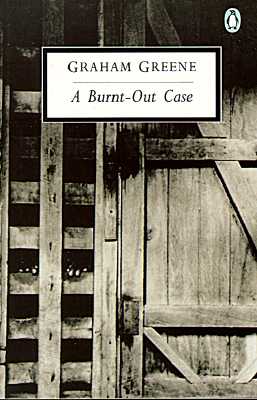 In an unfamiliar region it is always necessary for the stranger to begin at once to construct the familiar, with a photograph perhaps, or a row of books if they are all that he has brought with him from the past. Querry had no photographs and no books except his diary. The first morning when he was awakened at six by the sound of prayers from the chapel next door, he felt the panic of complete abandonment. He lay on his back listening to the pious chant, and if there had been some magic power in his signet ring, he would have twisted it and asked whatever djinn answered him to be transferred again to that place which for want of a better name he called his home. But magic, if such a thing existed at all, was more likely to lie in the rhythmical and magical chant next door. It reminded him, like the smell of medicine, of an illness from which he had long recovered. He blamed himself for not realizing that the area of leprosy was also the area of this other sickness. He had expected doctors and nurses; he had forgotten that he would find priests and nuns.
In an unfamiliar region it is always necessary for the stranger to begin at once to construct the familiar, with a photograph perhaps, or a row of books if they are all that he has brought with him from the past. Querry had no photographs and no books except his diary. The first morning when he was awakened at six by the sound of prayers from the chapel next door, he felt the panic of complete abandonment. He lay on his back listening to the pious chant, and if there had been some magic power in his signet ring, he would have twisted it and asked whatever djinn answered him to be transferred again to that place which for want of a better name he called his home. But magic, if such a thing existed at all, was more likely to lie in the rhythmical and magical chant next door. It reminded him, like the smell of medicine, of an illness from which he had long recovered. He blamed himself for not realizing that the area of leprosy was also the area of this other sickness. He had expected doctors and nurses; he had forgotten that he would find priests and nuns.A Burnt-Out Case shares certain superficial similarities with Greene's The Heart of the Matter; both are concerned with British men living in Africa, suffering from the kind of alienation that Greene's exotic settings typically symbolize. To my mind it is also a sort of mirror image of another of his books, Brighton Rock. While that one is concerned chiefly with the conundrum of the special propensity for evil that religious men exhibit, A Burnt-Out Case is about the capability of non-religious men for acts of good.
Querry is searching--note the uncharacteristic appropriateness of his name--for an escape. Once a famous architect of churches, he has lost the ability to love, to feel, or to suffer, and before these has long ago lost his faith. He comes to Africa to run from even himself, and ends up in a leper colony run by priests. He wishes to be of use, but eventually is pressed into designing a new hospital for the order. Soon, his presence in the leper colony is discovered by an enterprising reporter, and Querry, contrary to his wishes and his own self-image, is being hailed in Europe as a sort of living saint.
Querry insists that he cannot be a saint; saints suffer, saints love, and above all saints believe in God. He, on the other hand, is a "burnt-out case"--like those lepers who must lose limbs and become horribly mutilated before the disease will run its course and disappear. Despite all his protests to the contrary, it becomes clear that Querry, for whatever his past transgressions in Europe, has a good heart. The question then is, if Querry does not claim God, can God claim Querry? The Superior of the order opines in a sermon:
"But Yezu [Jesus] is not just a holy man. Yezu is God and God made the world. When you make a song you are in the song, when you bake bread you are in the bread, when you make a baby you are in the baby, and because Yezu made you, he is in you. When you love, it is Yezu who loves, when you are merciful it is Yezu who is merciful. But when you hate or envy it is not Yezu, for everything that Yezu made is good. Bad things are not tehre--they are nothing. Hate means no love. Envy means no justice. They are just empty spaces, where Yezu ought to be."
This puts into my mind Gerard Manley Hopkins' poem, As Kingfishers Catch Fire:
I say more: the just man justices;
Keeps grace: that all his goings graces;
Acts in God's eye what in God's eye he is--
Christ--for Christ plays in ten thousand places,
Lovely in limbs, and lovely in eyes not his
To the Father through the feature of men's faces.
The essential thrust of A Burnt-Out Case is that Querry desperately wants to run from himself but, as the saying goes, wherever he goes, there he is. Querry considers himself lost and faithless, but God follows even when He is not wanted because God is in Querry. As Hopkins puts it, he "[a]cts in God's eye what in God's eye he is."
And this is precisely why I love reading Greene so much--though his books are dark and the people in them generally miserable (as it seems Greene himself was) they are built around affirmations like this one, that good and God cannot be rubbed out, erased, or run away from.

1 comment:
Good review. Add another one to the Greene queue.
Post a Comment